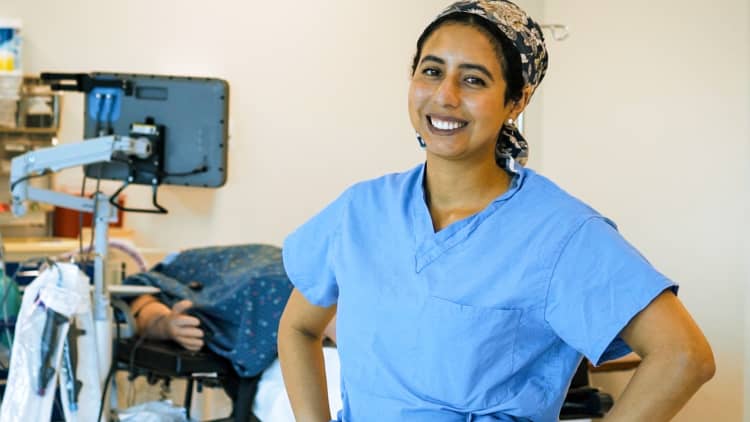Ron Shaich spent roughly two decades building Panera Bread into nationwide behemoth, ultimately selling it for $7.5 billion in 2017.
The Panera co-founder, 69, credits that success to a simple practice, which he did — and still does — once per year, he tells CNBC Make It: writing a "pre-mortem."
Between Christmas and his December 30 birthday, Shaich dedicates a day or two to visualize himself at the end of his life, he says. He writes a news story, obituary or journal entry from that hypothetical future, looking back on his own endeavors, listing only the most important accomplishments.
Then, he maps out how to get from his current state to that future version of himself. He starts at the end and plans backwards, and when he reaches the present day, he outlines specific projects he can undertake within the following year.
The practice helps Shaich combat the tendency to procrastinate, he says: "I don't want to worry about a heart attack on the way to the hospital, when it's too late to. If I want to build a business, I'd better understand what is going to matter [down the line] and make sure that I get it done now. Same thing applies to your own life."
Here's why it works, and who might find it particularly useful, according to Shaich.
A useful practice for anyone chasing 'deeper' success in life
In his recently published memoir, "Know What Matters: Lessons from a Lifetime of Transformations," Shaich references the work of psychologist Gary Klein.
Klein's pre-mortem technique involves visualizing a future where all your plans and aspirations have failed, and thinking of reasons why that might have happened. Shaich developed his own version after his parents passed away, particularly after he watched his father look back on his accomplishments and voice regrets, he says.
People often get blinded by "sideways" definitions of success, says Shaich — getting caught up by trying to match other people's achievements, rather than concentrating on your own future. A pre-mortem can help keep you focused on your own goals.
He particularly recommends the practice for people early in their careers, who haven't quite secured their dream job yet. Climbing the ranks at your current employer isn't necessarily the same as working toward your long-term goals, he notes.
"Your pre-mortem is not about making a few dollars more," says Shaich. "But it's really about the deeper issues: What is it you are trying to create with your life? What are you going to respect? You should be rigid in your vision, yet flexible in execution."
The rationale for 'backward planning'
The "backward planning" part of Shaich's pre-mortems is a crucial element, psychologists say.
Starting with your end goal and working backwards is a more effective way of achieving your goals than simply building a to-do list and hoping you'll eventually end up in the right place, according to a 2017 study published in the academic journal Psychological Science.
In that sense, Shaich's pre-mortems are similar to the practice of "anti-goals," popularized in a 2017 Medium post written by Andrew Wilkinson, co-founder of investment firm Tiny.
When building Tiny, Wilkinson and his co-founder decided to focus on what they didn't want their average workday to look like. They didn't want to feel exhausted at the end of each day, for example, so they established an anti-goal of never scheduling early morning meetings.
"Of course, we still have the odd unavoidable crappy day, but these simple Anti-Goals have made our lives immeasurably better by setting an Anti-Goal instead of a goal," Wilkinson wrote. "Try it sometime, it's insanely simple and strangely powerful."
Shaich agrees: Planning backwards can help you create a more specific, intentional approach. If life is a road trip, picking a destination helps you figure out which way to drive, he says.
"You should have a conversation with yourself about what you are going to feel good about, and respect, in these primary areas of your life down the road," Shaich says. "We are not yet figuring out how to get there. But we're just asking, 'Where are we headed?' first, so that we keep it in mind. And then from there, break it down."
DON'T MISS: Want to be smarter and more successful with your money, work & life? Sign up for our new newsletter!
Get CNBC's free Warren Buffett Guide to Investing, which distills the billionaire's No. 1 best piece of advice for regular investors, do's and don'ts, and three key investing principles into a clear and simple guidebook.



